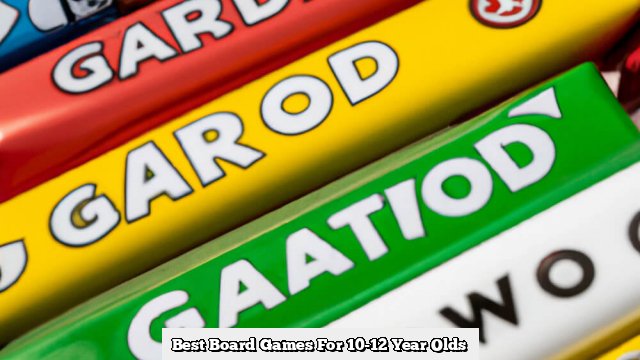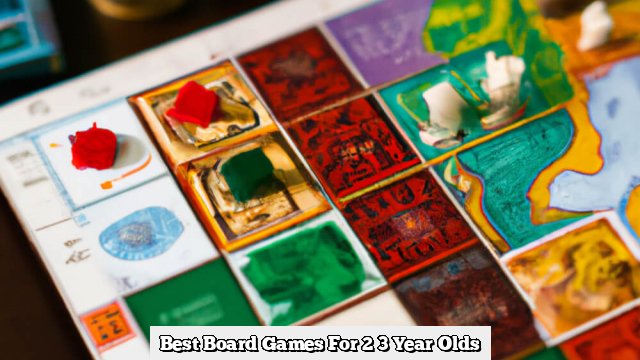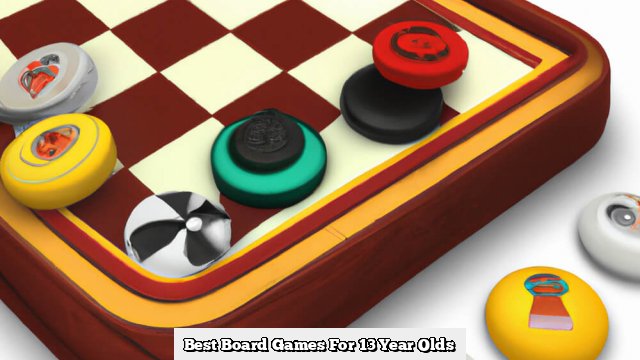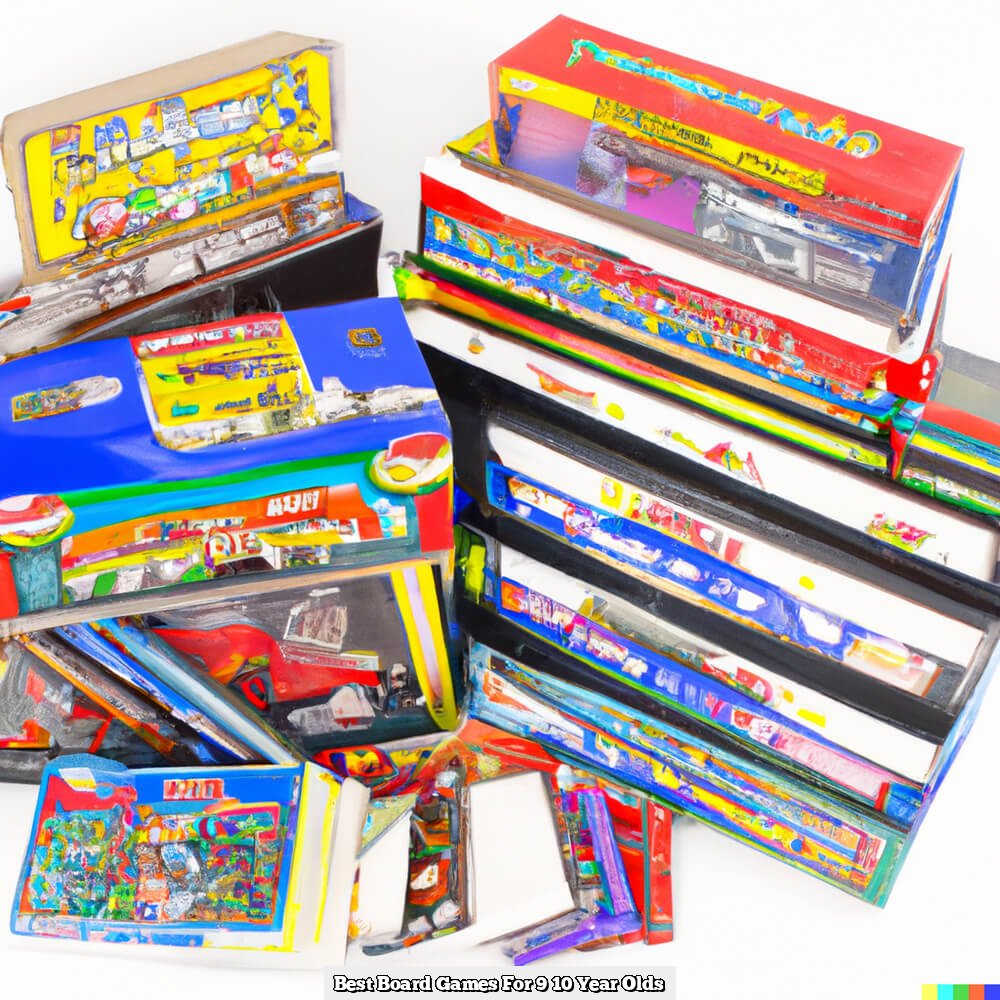Introduction
Board games are a great way to support brain development in 5-7 year olds. Engaging in these game activities helps to promote educational, physical, emotional and social skills. Statistics show that children in this age group can benefit from playing board games, enhances understanding of concepts such as strategy, problem solving and turn taking. Additionally, board games can help promote a healthy sense of competition at an early age by providing children with chances to structure their own rules or use their own strategies to win the game.
Moreover, board games offer excellent opportunities for learning basic math skills needed for future success in academic pursuits such as counting or understanding fractions and percentages. As well, young people may improve their communication skills through playing board games that involve reading instructions or directions on cards or symbols. It’s also important to emphasize that playing together helps solidify family relationships between parent and child while teaching the child how to cooperate with others in achieving a goal within a set structure ” skills essential during life’s journey.
Finally, there is the added fun factor ” giggles, exchanges with peers and stories to tell when it comes time for recess at school! Together these reasons make board games an activity worthy of any 5-7 year old’s daily routine.
Benefits of Board Games for Young Children
Board games are a great way to teach young children essential skills. Playing board games can help kids between the ages of 5 and 7 in a variety of important ways. Board games can assist children in learning counting, number recognition, basic arithmetic, strategic planning and problem solving skills. As kids play with others, they gain better communication skills, learn to share and work as a team, and get used to adhering to certain rules. As children spend time together playing games, it encourages conversation as well as socialization which helps develop their social and emotional skills. Board games help nurture both logic and creativity by teaching young players how to read different game boards, create strategies, understand the consequences of their choices make decisions based on identified factors and observe how other people use effective strategies. Additionally playing board games is a great way for parents or caregivers to bond with the child by having conversations while they play – making this an enjoyable learning experience for everyone involved.
Choosing the Best Board Games for 5-7 Year Olds
When choosing board games for 5-7 year olds, it’s important to focus on finding games that encourage creativity, cooperation, and problem solving. Cooperative games can teach the importance of teamwork and working together, while problem solving games help kids build their skills in critical thinking and logic. Look for age appropriate games with simple rules families can play at home to pass the time.
There are a variety of classic board games designed specifically for 5-7 year olds as well as some innovative new options that introduce programming and coding principles through gameplay. One popular example is Robot Turtles where 2 -5 players take turns trying to collect gems using basic coding instructions. Another fan favorite is Pit which is the world’s oldest commodity trading card game – and a great way for children to learn about markets without any financial risks.
More complexity can be introduced with strategy-building board games such as Settlers of Catan or Carcassonne. In these types of boardgames players must make a series of decisions each round to acquire resources and points before reaching a predetermined goal set at the start of the game. These type of decision making games are perfect for older kids around this age group since they engage the player mentally in each move rather than simply relying on luck or chance.
Different Types of Board Games for 5-7 Year Olds
Board games can be great for teaching kids valuable skills, and there are plenty of fun options for 5-7 year olds. Here are some examples:
Memory games: These kinds of games help children practice their memory skills in a fun way. Options like Memory, Animal upon Animal and My First Memory come with bright cards that feature animals or other colorful images. As children pair up the colors or shapes they are strengthening their working memory while having fun as they go.
Logic Games: Logic games can teach young ones how to follow a certain set of rules and use strategy to solve a problem. Sheriff of Nottingham, Zoo Ball and Sleeping Queens are popular choices designed specifically with younger kids in mind. They involve color matching, sorting and simple deductive reasoning to make decisions.
Social Storytelling Games: Cooperative game play has been growing in popularity in recent years as it engages kids in creative storytelling activities that build socialization skills. For example, Aliens Love Underpants is a game where players work together to create stories about aliens visiting us from outer space.
Party Games: Easy-to-learn party favorites like Guess Who?, Count Your Chickens! and Go Fish are all enjoyable party alternatives that only take minutes to learn how to play”and will fill up lots of time with laughter and family fun!
How to Make Board Games Part of Family Time
Board games can be a great way to bring families together, making the time more enjoyable, rewarding and educational. For families with children aged 5-7, there are plenty of board game options. If you’re looking for one that all the kids and adults can enjoy together, seek out ones that have multiple levels of difficulty. This will allow younger players to take on easier challenges, while more experienced gamers get increasingly difficult tasks. Additionally, some games may include options such as varying levels of difficulty or bonus rounds that challenge both younger and older players alike.
Examples of board games suitable for children aged 5-7 include Spot It!, Harry Potter Hogwarts Battle, My First Carcassonne, Sorry!, and Candy Land. All five of these games are designed specifically with this age group in mind; they all emphasize interactive play over final scores or winners and give everyone an equal chance of succeeding or failing which diminishes the focus on competing against each other. They also encourage problem solving and critical thinking skills through gameplay which is not just fun but also educational for the kids.
When considering board games for family time involving children aged 5-7, it’s important to pick age appropriate ones that stimulate their minds in addition to keeping everyone interested in playing them together. Doing this will create a fun and rewarding experience for parents and children alike!
Cooperation and Social Skills Development Through Board Games
Board games are a great way to teach cooperation and social skills development to 5-7 year olds. These ages are often a bit tricky when it comes to learning how to develop these important life skills. Board games provide kids with an opportunity to practice interacting while having fun. They can learn turn-taking, sharing, problem solving, and playing together in a fun way that keeps their attention so they don’t see it as boring or laborious.
In particular, cooperative games can be especially beneficial for 5-7 year olds because everyone works together towards one shared goal – winning the game as a team rather than competing against each other as individuals. This helps build camaraderie among the players and encourages them to practice their communication and negotiation skills. Additionally, cooperative games often involve imaginative storytelling elements that help foster creativity and keep the game interesting for all parties involved.
In addition to the classic board games such as Monopoly, there are now many specially designed board games just for 5-7 year olds that encourage cooperation and social skills development while being entertaining at the same time. Some of these titles include Animal Upon Animal (a stacking game), Keep Busy (a counting game based on different tasks) and Spelldown (a word building game). These types of noncompetitive board games make great family activity ideas which can be enjoyed by adults too!
Creative Board Game Ideas to Involve Your Kids
Kids at the age of five to seven years old are usually bursting with enthusiasm and energy. It’s important that they get an outlet for this, but also something educational and entertaining. Board games can provide the perfect balance of both. Board games provide kids this age group with the opportunity to think critically, make decisions and interact socially in a healthy way with those around them. Popular board games like Candyland and Chutes & Ladders can be great ways to introduce kids to board gaming. But there are other wonderful creative board game ideas from classics like Mouse Trap or Operation, to modern ideas like Math Circus or Jumping Jack Jr., that offer higher levels of advanced play for children this age. Having your child create their own rules for a game can help foster creativity and give them an emotional sense of ownership too. For example, you could have your child draw their own cards or assign numbers on pieces of paper for a game of Memory or Bingo instead of buying an official set. Puzzles are another great idea as long as they don’t overwhelm your child; encourage them to find creative solutions when there’s a challenging piece – it teaches problem-solving skills! Tabletop roleplaying games can be fun activities too, where your children take on characters in different scenarios while developing reading comprehension, confidence and learning how to think on their feet! Board games provide lots of fun experiences each time you play so look into some options today!
Conclusion
Board games make excellent gifts for 5-7 year olds. Not only are they an entertaining source of fun, but they also nurture creativity and cognitive development. These age-appropriate board games are designed to help young learners comprehend more complex ideas. They inspire imaginative thinking as well as cooperation skills, communication skills, and problem solving strategies among players. In addition, these board games offer positive reinforcement aimed at boosting self-esteem and developing a sense of accomplishment in children. Playing board games with friends and family is an enjoyable way to teach invaluable lessons while developing strong bonds between individuals. Board games provide hours of entertainment that can be shared amongst generations – from grandparents to grandchildren – allowing everyone to have a memorable experience that will last for years to come.

I love playing all kinds of games – from classics like Monopoly to modern favourites like Ticket to Ride.
I created this blog as a way to share my love of board games with others, and provide information on the latest releases and news in the industry.





